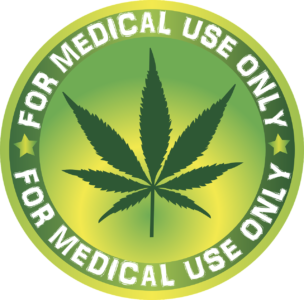
The Alabama Medical Cannabis Study Commission is proposing legislation that could impact Alabama employers. Here is a link to an article from AL.com discussing creation of the Commission and its work on medical marijuana: Commission Votes to Approve Medical Marijuana
Most notably, the Commission is opening the door to medical cannabis use, but its proposed legislation (which can be found here) takes great pains to educate the public that it does not condone “traditional” marijuana use. For example, the synopsis of the proposed act (which is proposed for codification at Ala. Code §§ 20-2A-1 et seq.) says: “this bill would prohibit the ingestion of any raw plant material, and would prohibit any smokeable or vaping product.” To that end, the term “Medical Cannabis” in the legislation does not include:
- Raw plant material.
- Any product administered by smoking, combustion, or vaping.
- A food product that has medical cannabis baked, mixed, or otherwise infused into the product such as cookies or candies.
Moreover, only a limited set of conditions will qualify for treatment by medical cannabis/marijuana, including: cancer; Crohn’s Disease; epilepsy; fibromyalgia; and, HIV/AIDs-related nausea or weight loss.
Section 20-2A-6 of the proposed legislation is designed to give businesses some comfort level with medical cannabis by stating that the proposed act does NOT :
(1) Require an insurer, organization for managed care, health benefit plan, or any person who provides coverage for a medical or health care service to pay for or reimburse a person for costs associated with the use of medical cannabis.
(2) Require any employer to permit or accommodate an employee’s possession or use of a medical cannabis product, to allow the use of medical cannabis in the workplace, or to modify the job or working conditions of an employee who engages in the use of medical cannabis that are based upon the reasonable business purposes of the employer.
(3) Prohibit an employer from refusing to hire, discharging, disciplining, or otherwise taking an adverse employment action against an individual with respect to hire, tenure, terms, conditions, or privileges of employment because of that individual’s possession or use of medical cannabis.
(4) Prohibit an employer from establishing and enforcing a drug testing policy or from implementing a drug-free workforce program established in accordance with Article 13, commencing with Section 25-5-330, of Chapter 5 of Title 25.
(5) Interfere with any federal restrictions on employment, including, but not limited to, regulations adopted by the United States Department of Transportation in Title 49, Code of Federal Regulations.
(6) Permit an individual to commence a cause of action against an employer for refusing to hire, discharging, disciplining, or otherwise taking an adverse employment action against an individual with respect to hire, tenure, terms, conditions, or privileges of employment related to use of medical cannabis.
(7) Require a government medical assistance program, employer, property and casualty insurer, or private health insurer to reimburse a person for costs associated with the use of medical cannabis.
Section 6 above is good for Alabama employers, because its says that they cannot be sued for taking an adverse job action (like termination) against an employee because of their use of legal, medical marijuana. Nevertheless, Section 2 raises some questions for me. The first part of that section says that employers are not required to accommodate an employee’s use of medical cannabis. In other words, employers don’t have to allow employees to use medical marijuana on-the-job. But, the very final phrase of that section tacks-on the words: “that are based upon the reasonable business purposes of the employer.” I’m not sure what the purpose of that phrase was intended to be. It’s possible, however, that somebody could argue that employer are required to allow medical cannabis on the job, unless they can demonstrate a “reasonable business purpose” for prohibiting its use. Hopefully, this phrase will be cleaned-up in the legislative process.
Finally, the legislation would also alter Alabama’s Workers Compensation Act:
An employee who is injured or killed while using medical cannabis is ineligible to receive any compensation under Chapter 5 of Title 25, Code of Alabama 1975, if the injury or death was caused by an action or inaction of the employee, even if the employee was in full compliance with Chapter 2A of Title 20, Code of Alabama 1975, at the time of injury or death.
Potentially, that section makes it more difficult for users of legal, medical cannabis to recover workers’ compensation benefits than users of illegal drugs. Alabama Code Section 25-5-51 currently provides: “no compensation shall be allowed for an injury or death caused by … an accident due to the injured employee being intoxicated from the use of alcohol or being impaired by illegal drugs.” Under that law, an employer attempting to deny workers’ compensation benefits must show that an employee was intoxicated and that the intoxication caused the accident in question. Under the Medical Cannabis Commission’s legislation, employers would not be required to prove intoxication. Instead, if an employee is prescribed medical cannabis and suffers an injury caused by the employee’s “action or inaction,” benefits could be denied.
The Alabama Legislature returns to session on February 4, 2020. This proposed legislation will unquestionably be one of the hot topics of that session.